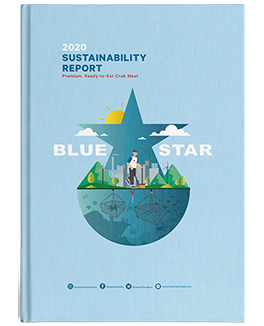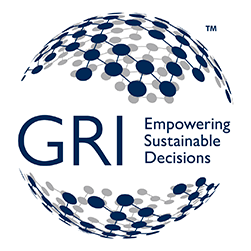Environmental Social Governance
“We don’t believe there’s such thing as a small effort, our philosophy is about
healing the planet one pound at a time”

John Keeler, Founder & Executive Chairman

Naturally our focus on ESG has grown stronger than ever, especially now when many of our biggest obstacles to growth are on the sustainability front. The looming effects of climate change and unsustainable production are the most significant issues that we face. The hardscrabble conditions of some seafood workers who work for exploitative operators is another critical concern that affects the reputation of our industry as a whole.

Our Report
As we navigate our way through the maze of these complex challenges, we remain steadfast in finding a lasting balance between environmental conservation, social equity, and commercial success.
We have taken clear and measurable steps that are specific to our operations and expertise.
The content of this report was defined following the impacts of our value chain on different stakeholders, including suppliers, customers, governments, local communities and civil society. We also engaged external experts with our team for their insights. The report addresses items of significant importance to BSF’s business strategy

The initiatives described on this report and index speak to our long-standing commitment to advancing initiatives across ESG topics:
Environmental
Pollution and Waste
Since 2017 Blue Stars executes recycling programs across South East Asia in conjunction with Waste Management. Use of energy efficient light bulbs in plants and headquarters. Implementation of a recyclable corrugated cardboard program at headquarters by donating cardboard to smaller companies who recycle them into paper pulp for Latin America.
Environmental Opportunity
In 2003, Blue Star introduced its patent process Eco-Fresh Crab Meat Pouches. Since then, we have been leading the industry in ethical and sustainable packaging. Our pouches come in two sizes Foodservice & retail sizes. No matter the size, our pouches have been proven to consume less energy, emit lower amounts of greenhouse gases and require less waste management than cans or cups.
Social
As of 2019, we have a total of 14 employees at our Miami head office and 318 workers based in the Philippines, three of whom are project-based. Our Male to female ratio is at 1:3. 100% of our employees in the Philippines are locally-hired. Blue Star Foods only practices direct hiring of employees to minimize risks to exploitative practices that come with outsourcing or manning agencies. All our workers are direct hires, except for security guards who require a specialized hiring and training process.
Social Opportunity
Regardless of whether they are regular, project-based, or under probationary status, all workers under Blue Star Foods are covered by social protection systems, including health insurance, social security, and socialized housing. Depending on their years at work, we ensure that all our employees have access to various loans and benefits such as housing, salary and educational loans, as well as sickness, parental, and retirement benefits. We grant special leave privileges to solo parents and women enduring gynecological disorders.
Governance
The Board is accountable for the development, establishment and review of appropriate policy in these areas. Best practice is targeted through appropriate management objectives and structures. Our shareholders play a significant role in corporate governance. Blue Star constitution bestows formal responsibility for voting at Annual General Meetings and in alternative forums, voting on Board proposals that, in accordance with the constitution, require shareholder ratification.
Corporate Behavior
We fiercely protect our reputation and market position by having a zero tolerance policy against dubious or unethical corporate behavior, our code of ethics comprehends business principles, anti-competitive practice regulation, anti-corruption and tax transparency. The full commitment of the board of directors, in conjunction with the senior managers of the organization, is required to be socially responsible. In this sense, leadership does not reside with an individual (the CEO) within the organization but with all of those at the apex of corporate power and control.
Contributions to SDGs
The Sustainable Development Goals (SDGs) is an ambitious universal vision for shared prosperity on a healthy planet. It is the first global development agenda that explicitly taps the contribution of the private sector.
As a seafood company working with small fishing communities in developing counties, Blue Star offers our company’s innovation and creativity as building blocks for bridging the gaps between private gain and public good. We have already moved from pledges to actual practice by using our core business interests and skills to contribute to the Goals—particularly SDGs 4, 5, 8, 9, 13 and 14.

Quality Education

Innovation & Infrastructure

Life Below Water

Gender Equality

Climate Action
